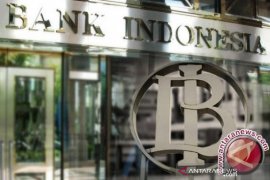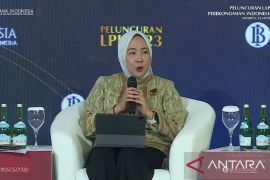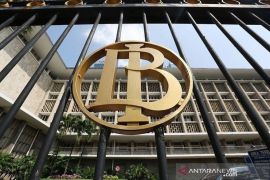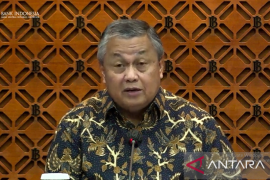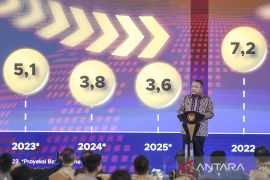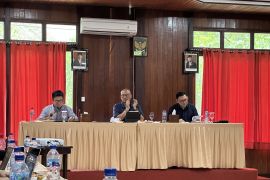"It is for maintaining the macro-economic and financial system stability to support the continuing process of domestic economic recovery," BIs executive director of communication Tirta Segara said after the BI board of governors meeting here on Thursday.
BIs deposit facility interest was also maintained at 4 percent, while the lending facility interest was maintained at 5.5 percent.
BI last changed the 7-Day Reverse Repo Rate from 5 percent to 5.75 percent on Oct 20, 2016.
Segara stated that BI would still maintain its "neutral" monetary policy and adjust it only if inflation rises above BIs inflation target of 3 to 5 percent.
He noted that external pressures still overshadowed, but the Feds decision to increase its reference rate to 1 to 1.25 percent has been anticipated, making Indonesias financial market remain positive.
On the other hand, global economy is predicted to improve, boosted by improving US economy driven by increasing consumption and investment and better employment indicator, he noted.
Improving global economy is also in line with improving Chinese economy boosted by government and private investment, he revealed.
BI also saw improving economy in Europe and Japan due to improving export performance and domestic demand.
He said that global commodity prices ahead still tend to decline due to strong supply and limited demand.
However, he asserted that the central bank still saw the presence of external pressures which cause the Feds reference rate hike, the decline of the Feds balance, and political dynamic in Britain.
He remarked that BI also saw domestic risks due to inflation pressure on administered prices and its impact on overall inflation this year.
BI also still closely monitored the risk of weakening demand from the public and private entities due to corporate and banking consolidation, he concluded. (*)
Editor: Heru Purwanto
Copyright © ANTARA 2017

